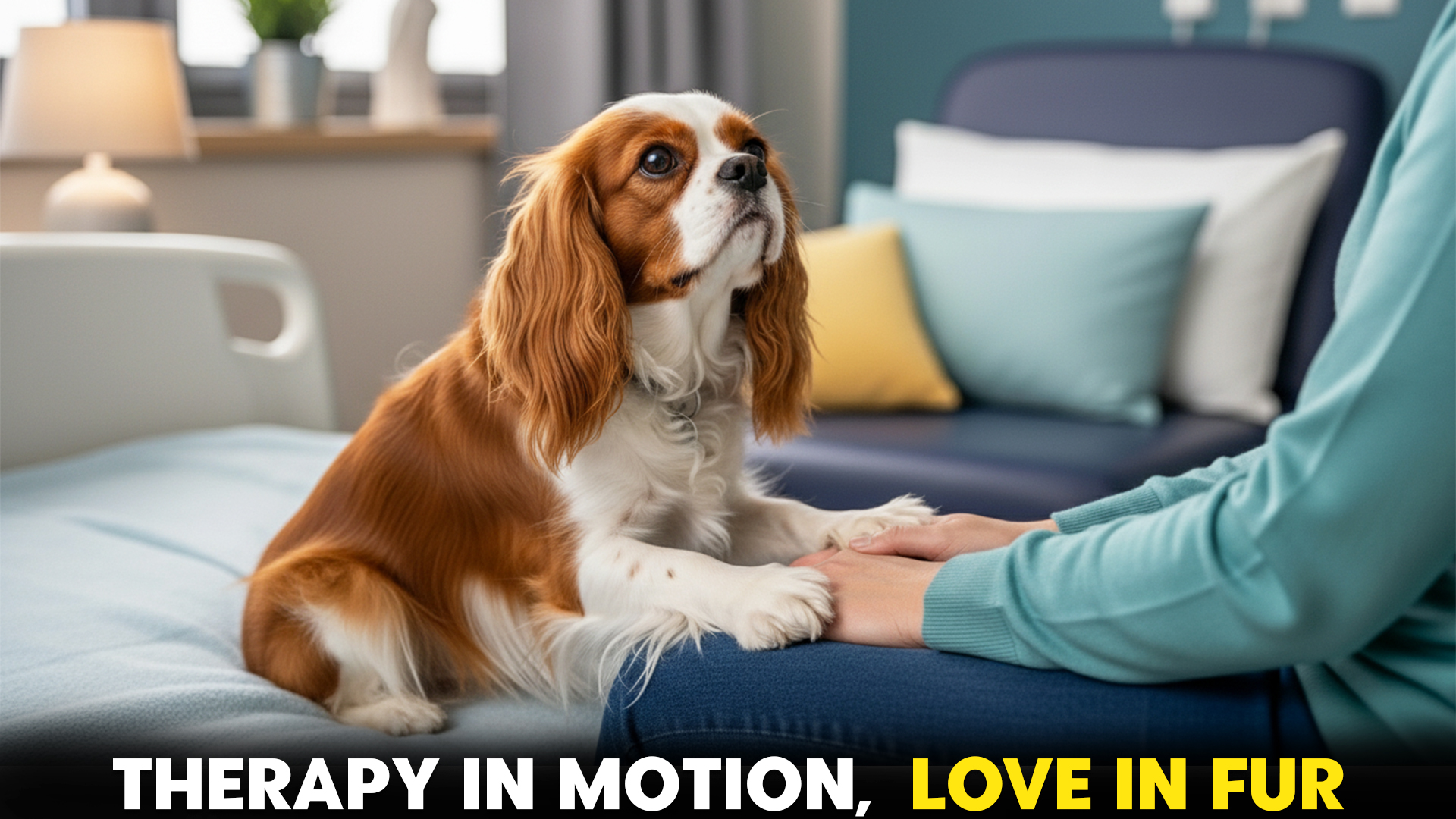Did you know that simply petting a dog for just 10 minutes can significantly lower cortisol levels—the body’s primary stress hormone?
According to a 2019 study from Washington State University, interacting with dogs can reduce anxiety and lift mood almost instantly. No wonder service therapy dogs are becoming an essential part of emotional wellness programs worldwide.
These gentle, four-legged service dogs and companions bring comfort where it’s needed most—hospitals, nursing homes, classrooms, and even disaster zones. Emotional support dogs and their ability to sense human emotion make them natural healers in fur coats.
While any dog can offer love, certain small breeds excel at therapy work due to their calm temperaments, affectionate natures, and adaptability.
Let’s meet the best small dog breeds making big emotional impacts—one wag at a time.
Small Dog Breeds Most Commonly Used As Therapy Animals
1. Cavalier King Charles Spaniel
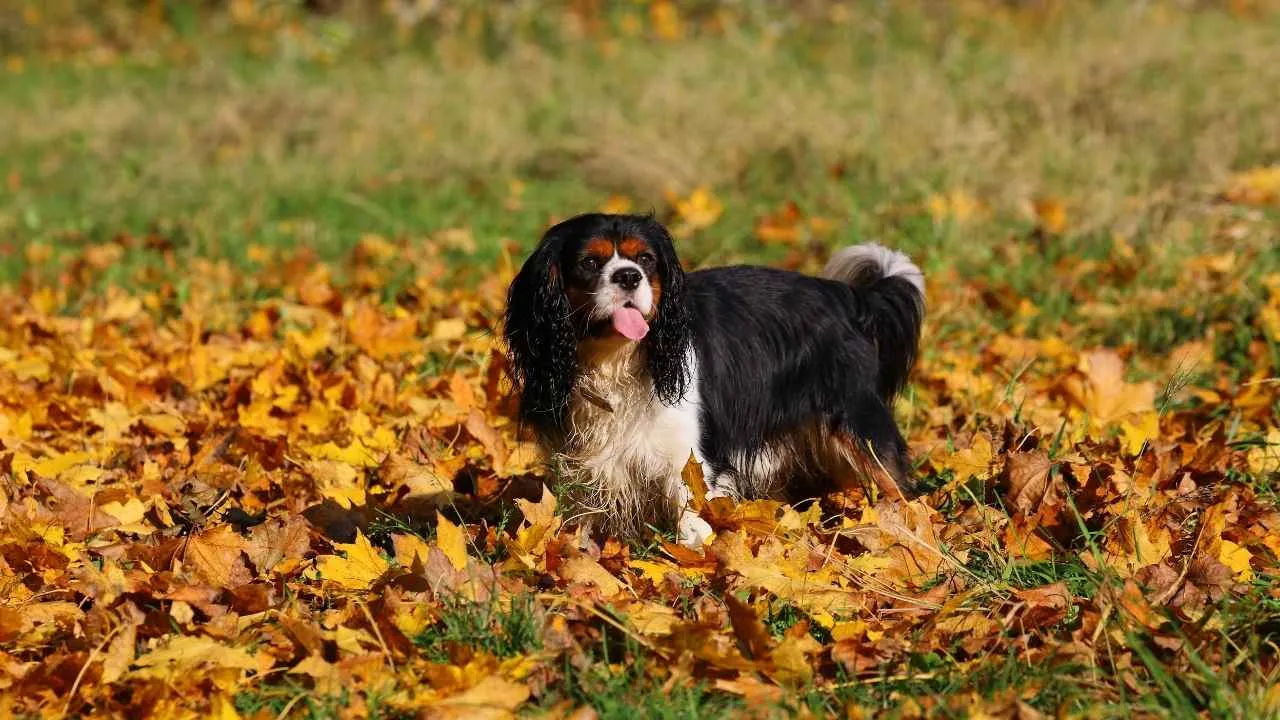
Gentle, affectionate, and endlessly loyal—the Cavalier King Charles Spaniel seems made for spreading love. This small dog breed combines regal elegance with a deeply emotional heart.
Known for their soft, expressive eyes and silky coats, Cavaliers thrive on companionship and respond intuitively to human moods.
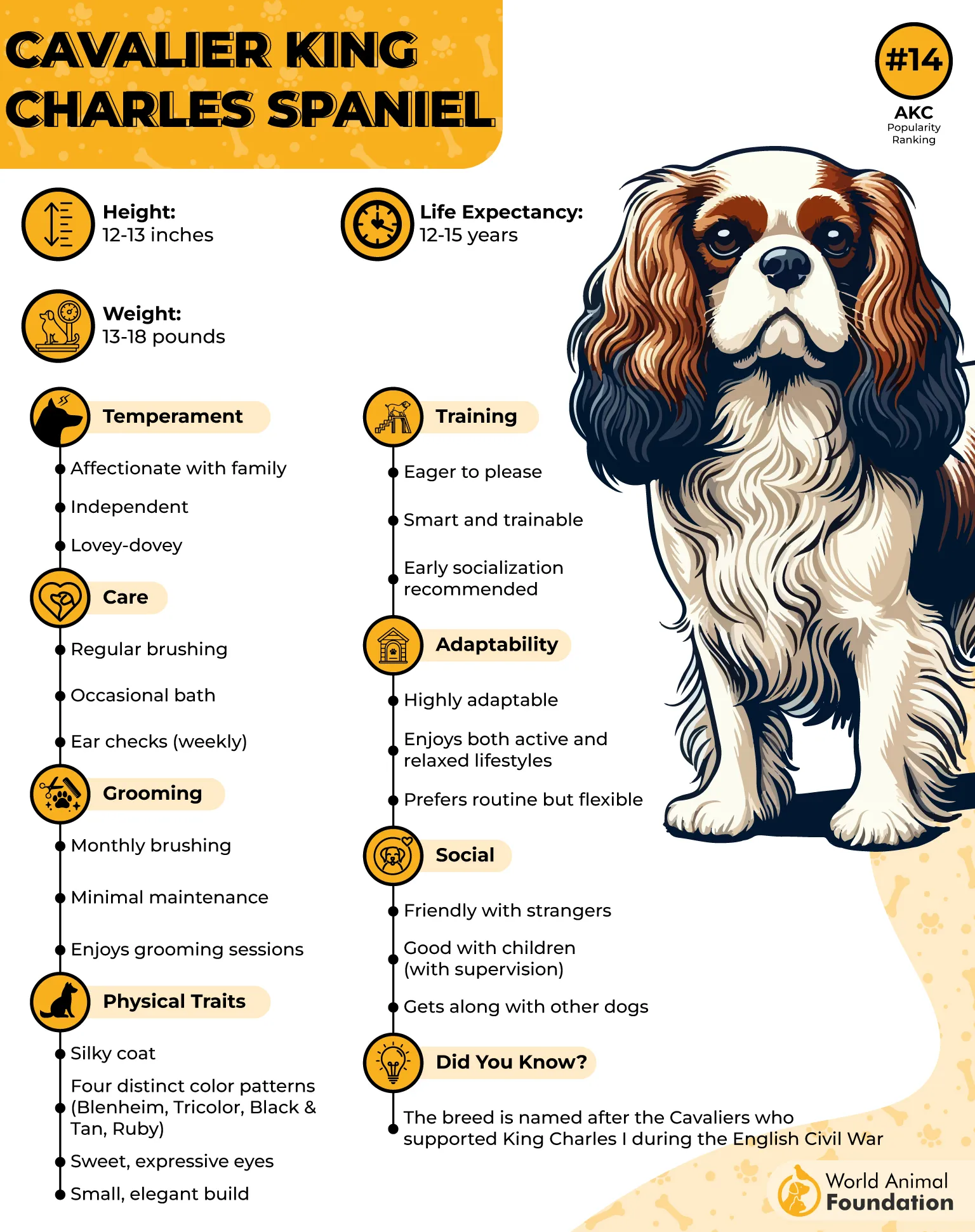
As therapy dogs, they shine in hospitals and senior care centers where empathy matters most. Their calm nature and soothing presence create instant trust and connection, helping ease anxiety and loneliness.
Training & Care Considerations:
Responds beautifully to positive reinforcement.
Moderate grooming is required for their flowing coats.
Ideal for gentle daily walks and close companionship.
Their only challenge? As per AKC, Cavaliers crave affection and can struggle with being left alone. The best handlers are those who can offer time, attention, and emotional warmth to match this breed’s generous heart.
2. Toy Poodle
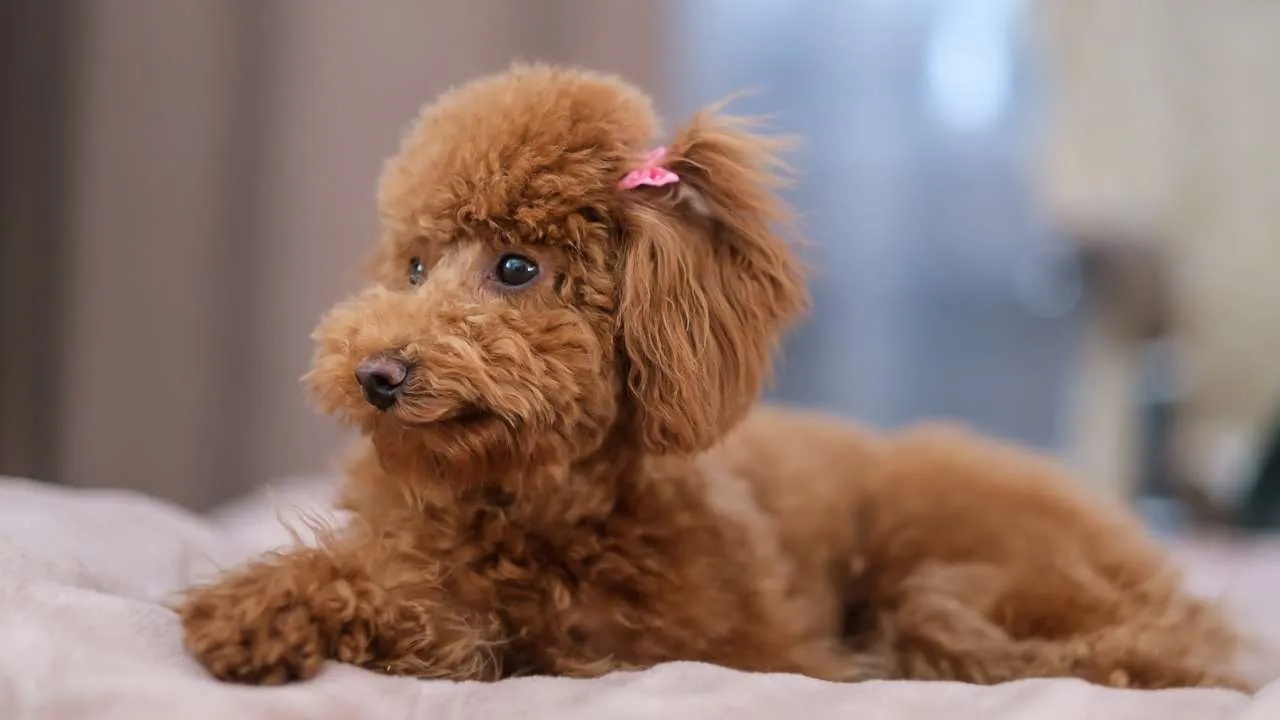
Elegant yet endearing, the Toy Poodle balances brains and beauty with a heart full of love. This small therapy breed is known for exceptional intelligence and an almost human-like sensitivity to emotions.
Their lively spirit and hypoallergenic coats make them a perfect match for individuals with allergies or high-energy households seeking calm affection.
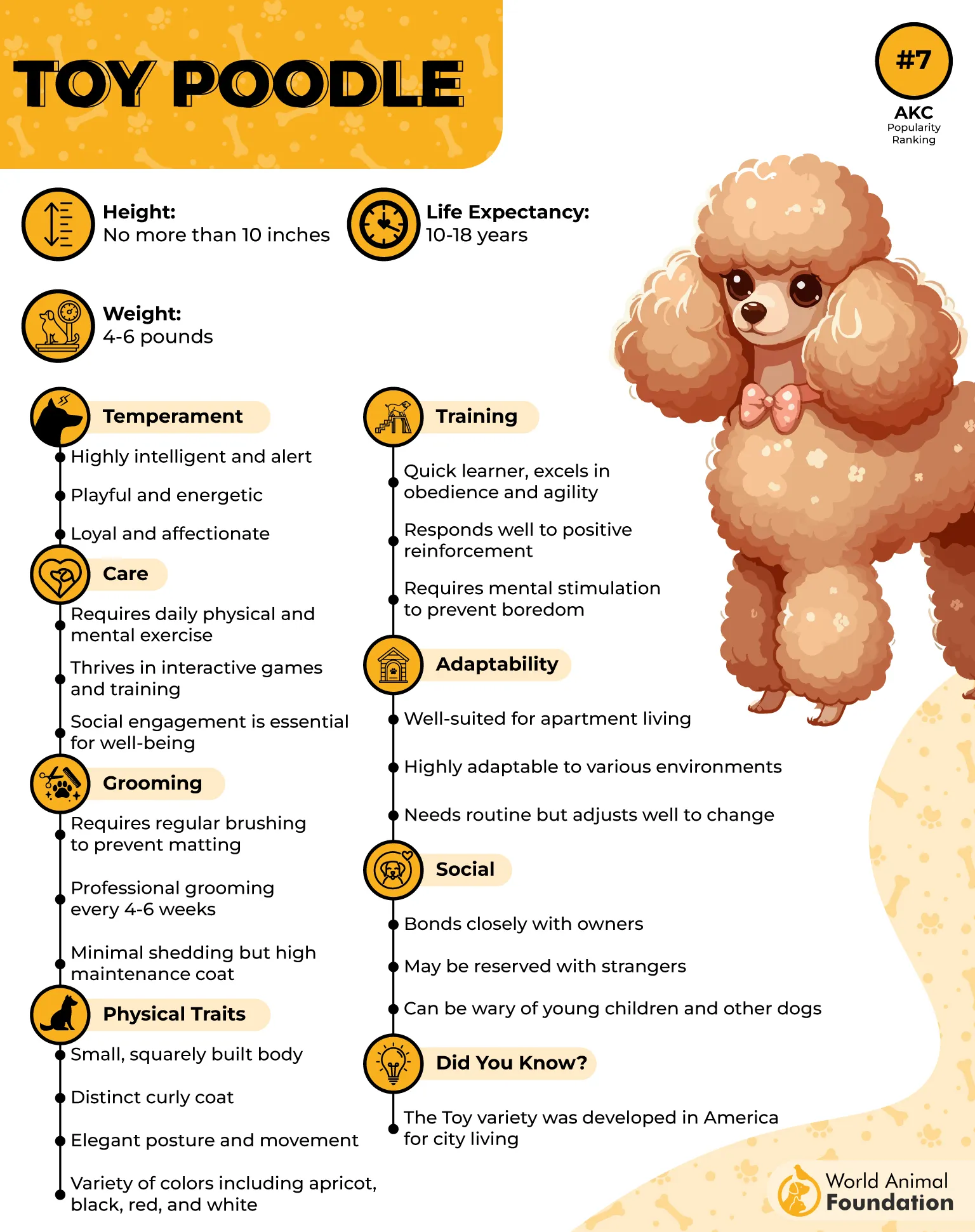
Purina adds that Toy Poodles excel in therapy roles that require quick learning and adaptability—like hospital rounds or school programs. Their ability to read human cues helps them comfort children, veterans, and patients recovering from trauma.
Training & Care Considerations:
Highly trainable; thrives on mental stimulation.
Regular grooming is essential to maintain their curly coats.
Enjoys social interaction and gentle play.
Because they’re emotionally perceptive, Toy Poodles may mirror their owner’s stress. Handlers who are patient, confident, and nurturing will bring out the best in this sensitive soul.
3. Shih Tzu
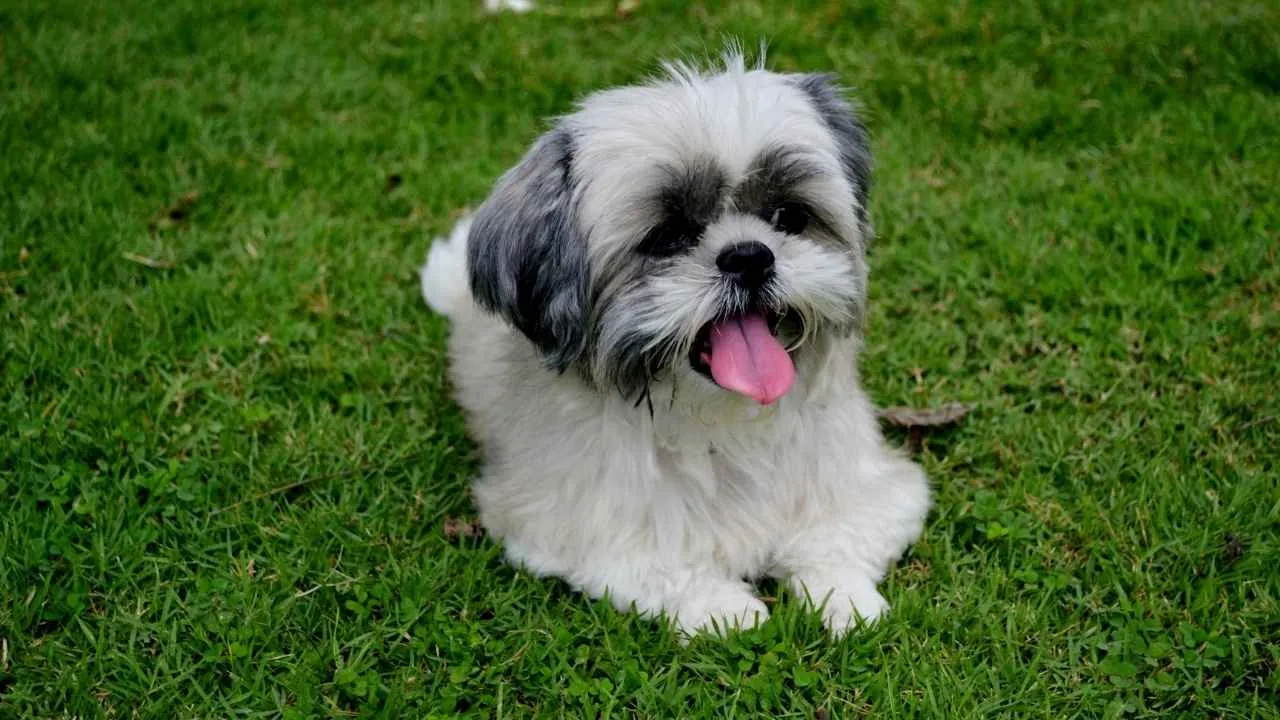
The Shih Tzu may be small, but this ancient Chinese breed carries a royal grace and a heart full of kindness. Known as “little lions,” they radiate serenity and affection.
With their long, flowing coats and soulful eyes, Shih Tzus bring calm wherever they go—whether cuddled on a lap or trotting through a therapy visit.
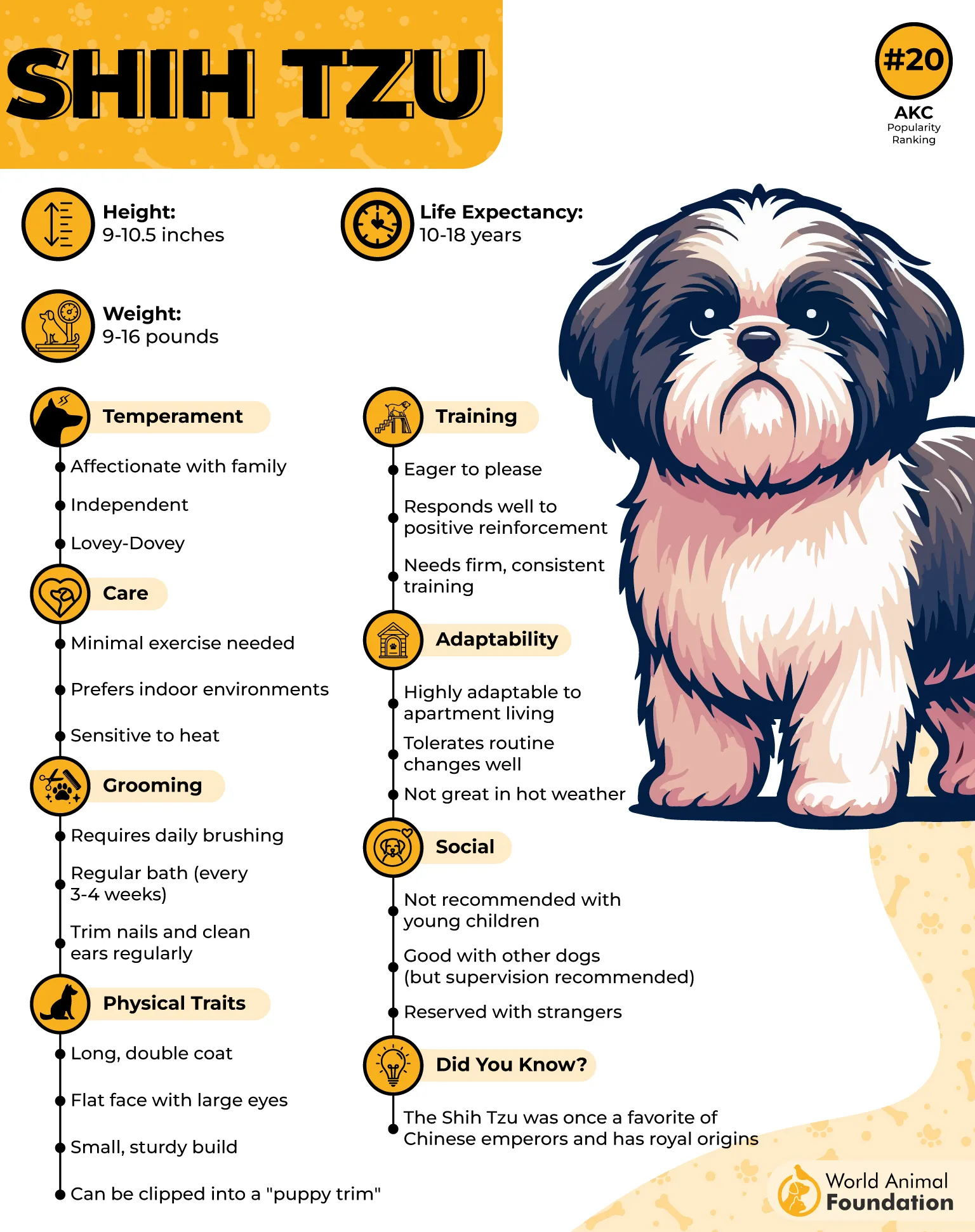
PDSA notes that their gentle demeanor and low energy make them perfect therapy dogs for hospitals and nursing homes. They seem to sense when someone needs comfort, quietly offering warmth and connection through touch and presence.
Training & Care Considerations:
Consistent but gentle training works best.
Regular grooming is required for their long coats.
Ideal for calm, indoor environments.
Occasionally stubborn, Shih Tzus need loving patience from their handlers. With consistent care and affection, they’ll reward you with unmatched loyalty and a healing companionship that feels almost spiritual.
4. Bichon Frise
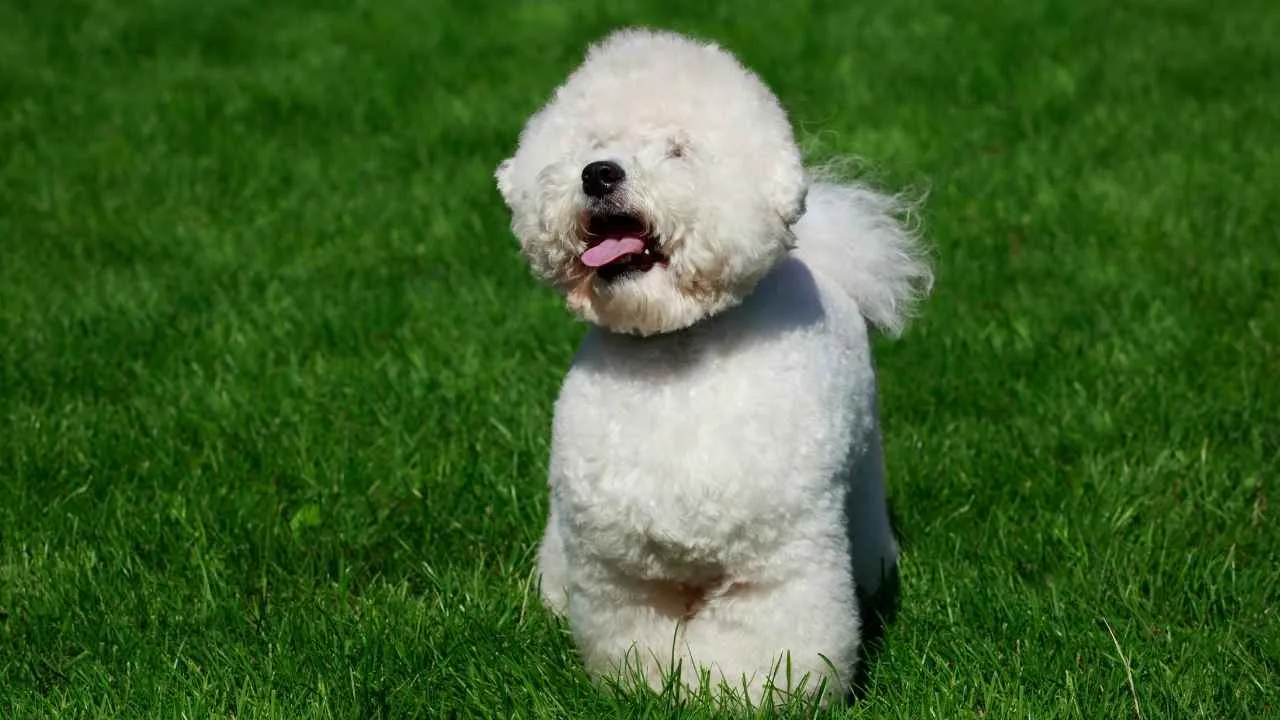
Like a walking cloud of joy, the Bichon Frise radiates happiness everywhere it goes. This small therapy breed is cheerful, affectionate, and full of charm, winning over even the most reserved hearts.
Their bright eyes and hypoallergenic coats make them both adorable and practical companions in therapy settings.
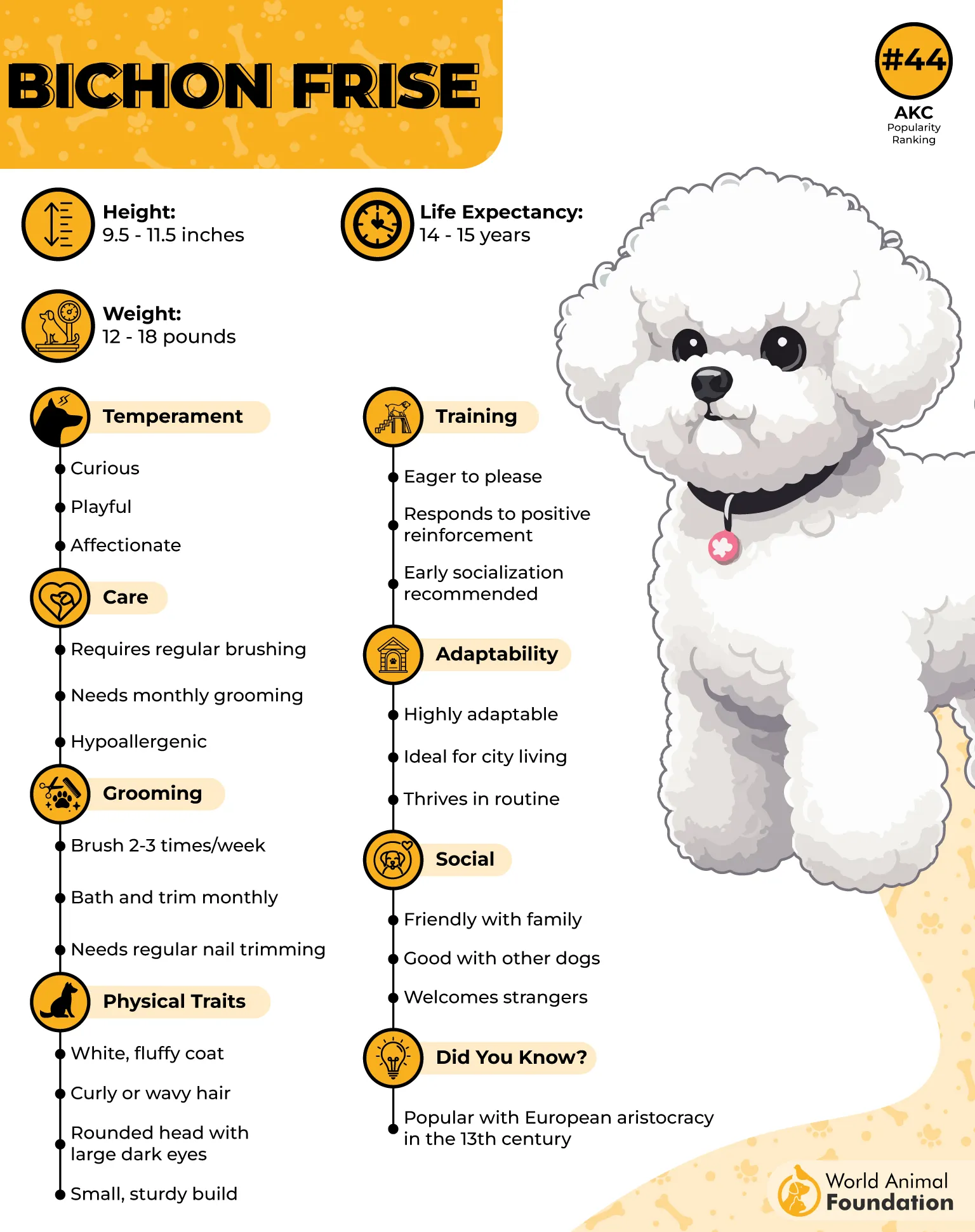
The Bichon’s playful energy and optimistic spirit uplift patients and children alike. They’re natural entertainers, bringing smiles and laughter—sometimes just by wagging their tails. Their positivity makes them ideal therapy partners for mental-health programs or senior living communities.
Training & Care Considerations:
Learns quickly with gentle, positive techniques.
Needs regular grooming to keep coats pristine.
Thrives on daily attention and affection.
However, their love for people means they dislike solitude. Bichons need handlers who can offer steady companionship, ensuring their sparkling personality never dims.
5. Yorkshire Terrier
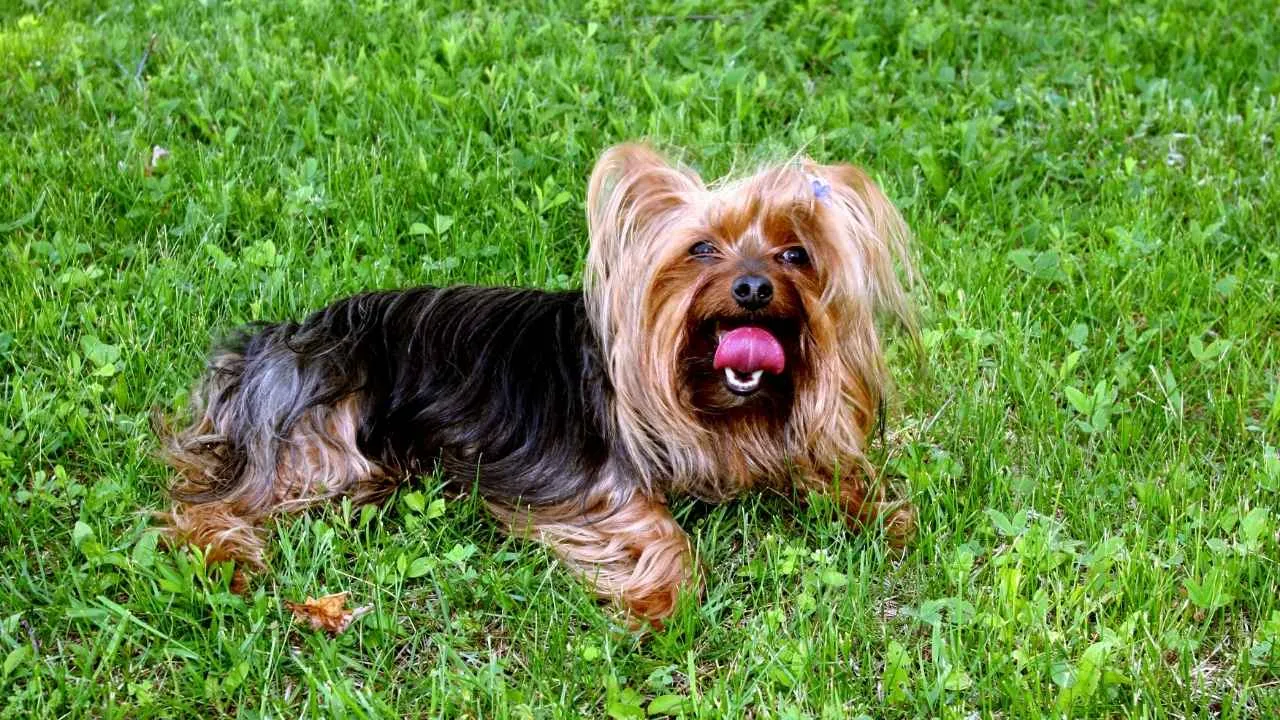
The Yorkshire Terrier, or “Yorkie,” proves that confidence doesn’t come in size. Beneath its silky coat and tiny frame lies a bold, intelligent spirit. Yorkies are fiercely loyal and perceptive, forming deep bonds with their humans and reading emotions with surprising accuracy.
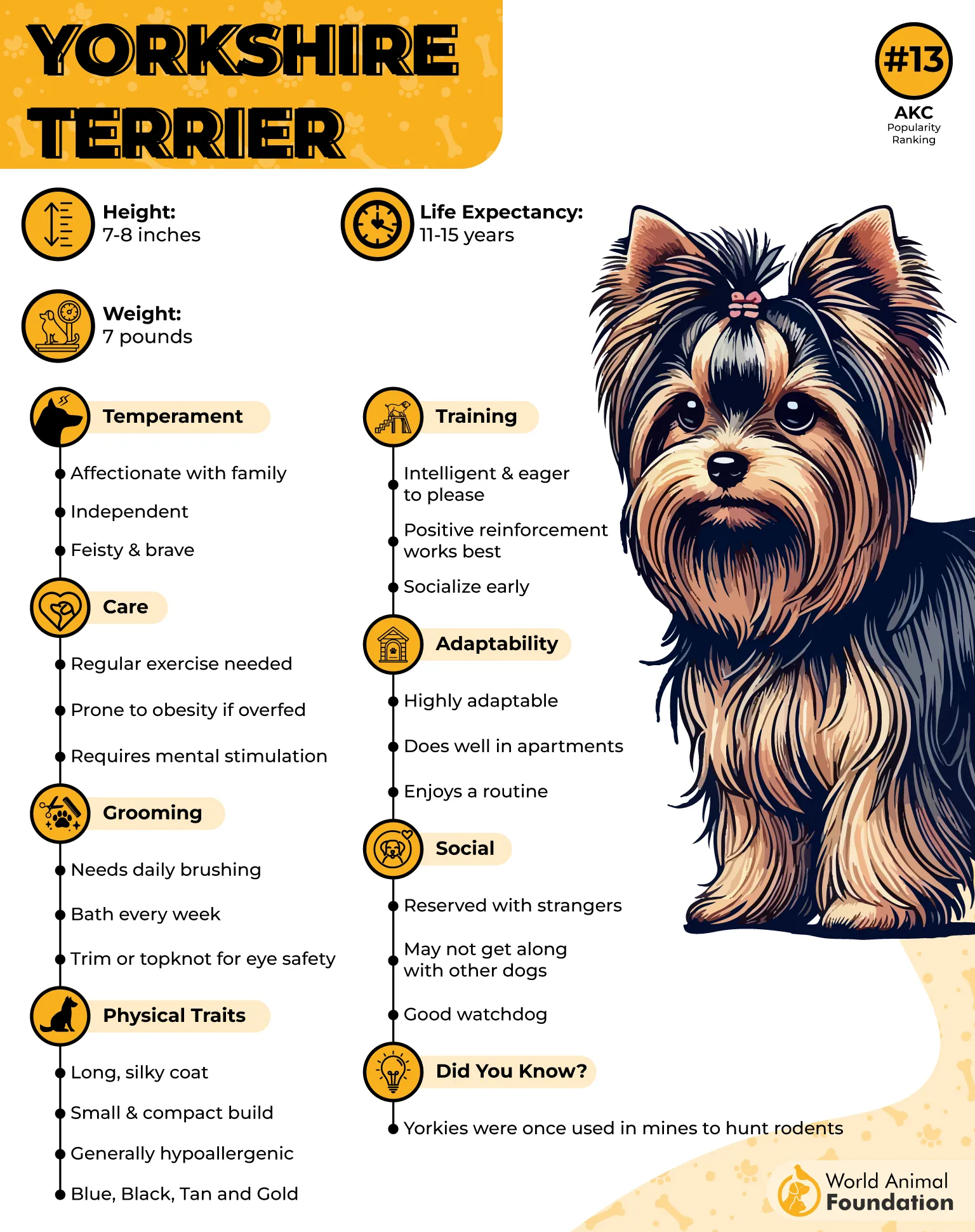
In therapy settings, Yorkies bring energy and enthusiasm. Their compact size allows them to visit hospitals and classrooms effortlessly, offering affection in the smallest spaces. Their natural curiosity helps engage children, while their warmth soothes anxious adults.
Training & Care Considerations:
Benefits from early socialization and firm, gentle guidance.
Regular grooming keeps their coats healthy.
Needs mental stimulation and short daily walks.
Their spirited independence can occasionally make them assertive. But with a calm, confident handler, Yorkies channel their courage into spreading love, proving that the tiniest hearts often comfort the biggest burdens.
6. Pug
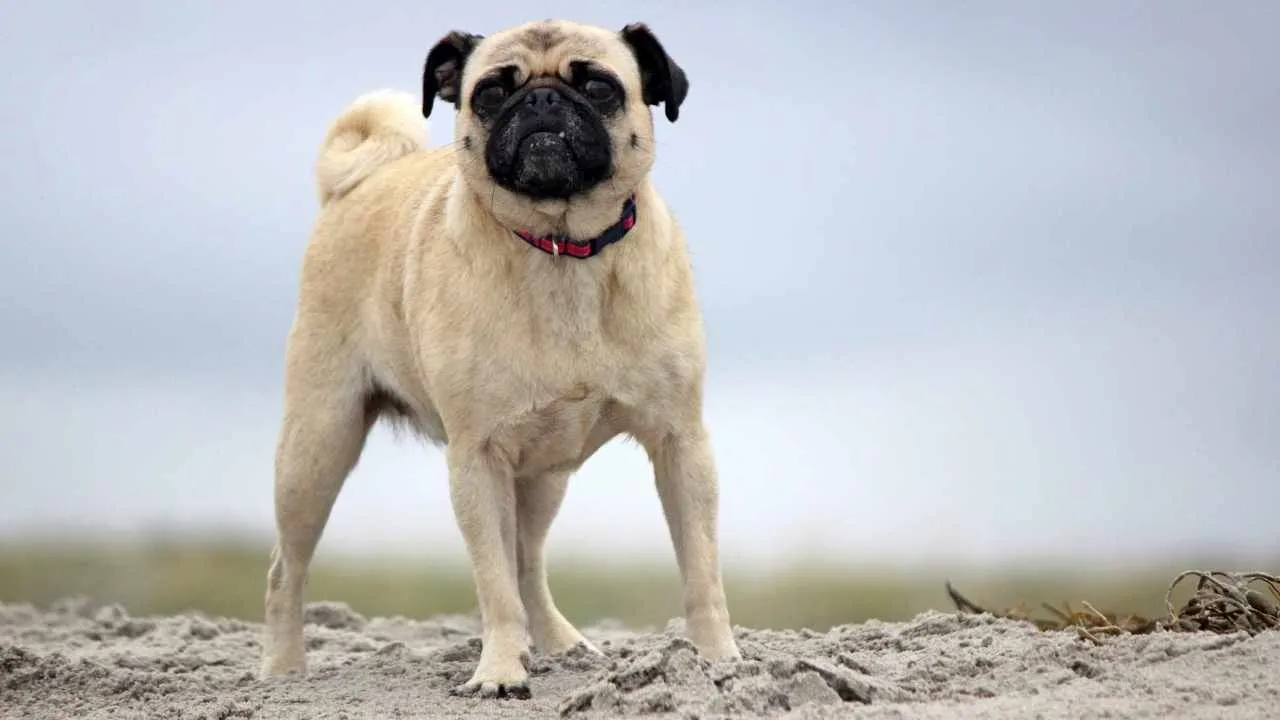
With its wrinkled face and expressive eyes, the Pug is a natural mood-booster. Known as the “clown of the canine world,” Pugs have a unique ability to bring laughter and comfort simultaneously.
Their affectionate, easygoing temperament makes them one of the best small dog breeds for therapy and companionship.
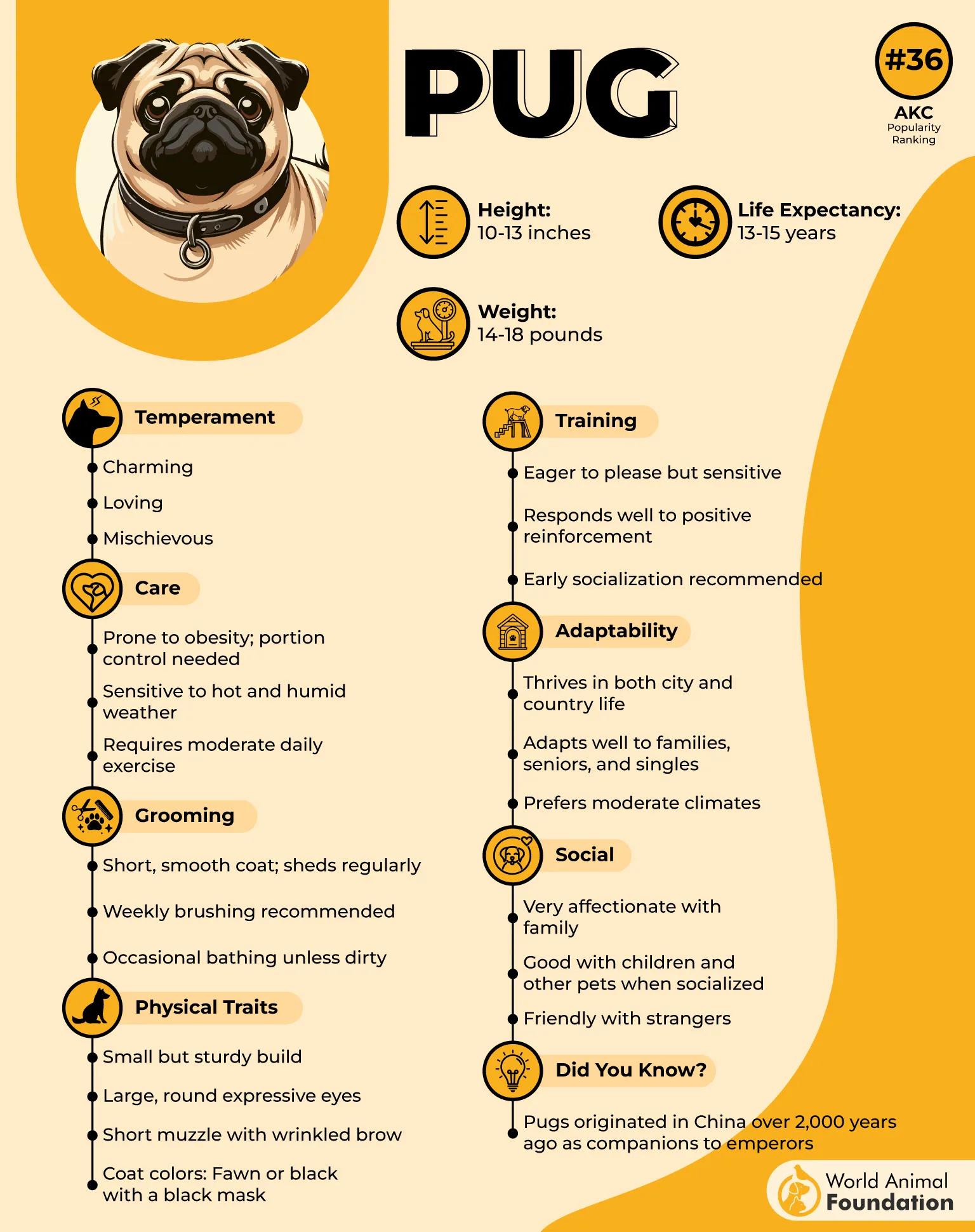
Pugs thrive in emotional-support roles because they crave human contact and respond with boundless affection. Their calm energy and warmth help people battling depression, stress, or chronic illness.
Training & Care Considerations:
Easy to train with patience and praise.
Minimal grooming; regular cleaning of facial folds needed.
Sensitive to heat—indoor living suits them best.
While endlessly loving, Pugs can be prone to weight gain and respiratory issues. A mindful handler who balances fun with care ensures this little charmer stays healthy while healing hearts.
7. Pomeranian
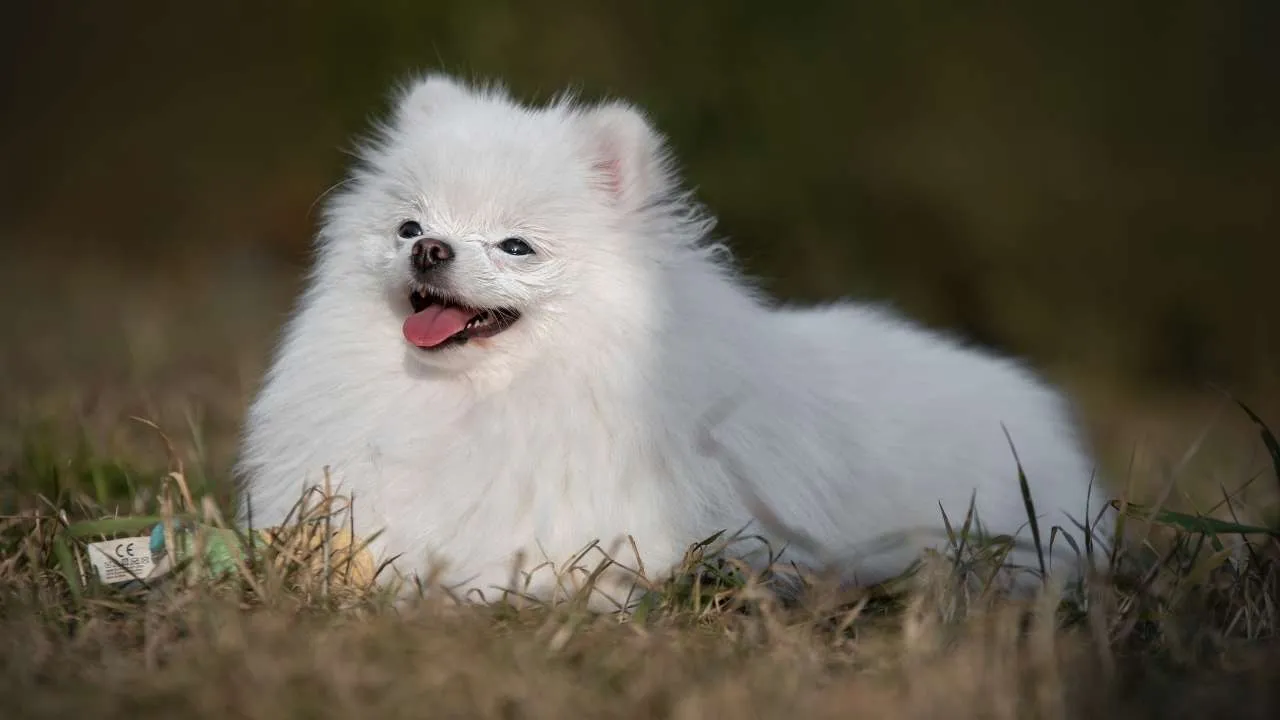
Fluffy, confident, and brimming with personality, the Pomeranian is proof that therapy dogs come in dazzling packages.
This pint-sized powerhouse loves being the center of attention and thrives on human interaction. Despite their small stature, Pomeranians radiate warmth and energy that instantly brightens moods.
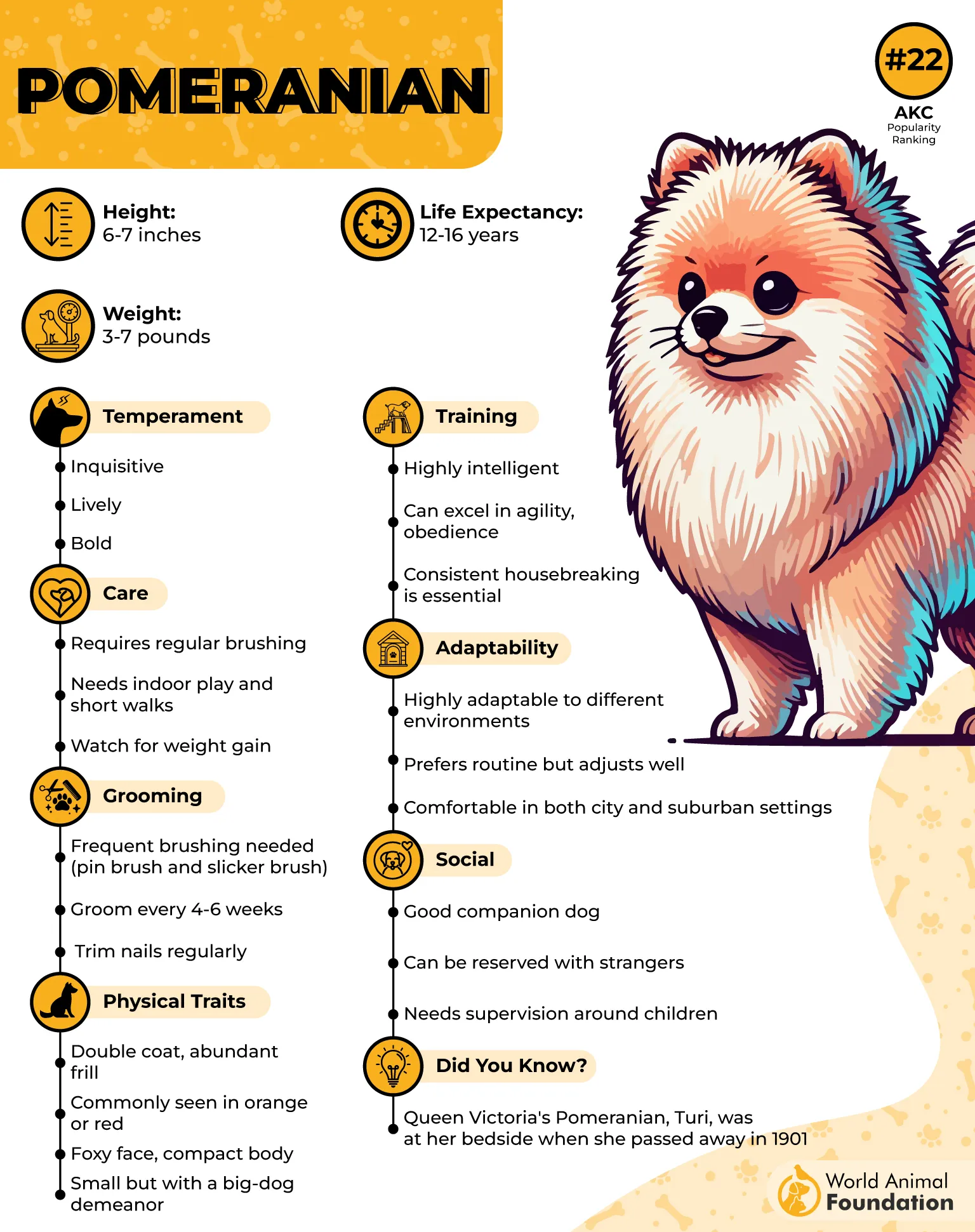
They’re particularly effective in therapy programs that benefit from high-spirited engagement—such as working with children or providing emotional support to individuals coping with loneliness. Their lively demeanor turns every session into a moment of genuine connection.
Training & Care Considerations:
Highly intelligent and eager to learn new tricks.
Require regular grooming due to their fluffy double coat.
Enjoys short play sessions and close companionship.
Sometimes, their big personality can verge on bossy if not guided gently. The ideal handler offers reassurance and structure—allowing the Pomeranian’s sparkle to shine in the service of spreading love and comfort.
FAQs
What makes small dog breeds great therapy animals?
Small dog breeds are well-suited for therapy work because they adapt easily to various settings and form strong bonds with people. Their friendly disposition and calm personality traits bring comfort and emotional connection to those in need. With proper training, these little companions offer big therapeutic benefits in every therapy setting.
What qualities should I look for in a small dog therapy breed?
Look for a companion dog with a gentle nature, patience, and empathy. The perfect breed should be easily trained and enjoy interacting with people of all ages, especially children. Confidence, affection, and adaptability make certain breeds exceptional for therapy purposes.
How often do small therapy dogs need to work or visit?
Most dogs are trained to visit one to three times per week, depending on their energy and comfort levels. Short, positive sessions help maintain their enthusiasm and emotional balance. The goal is always quality interaction, ensuring the dog and the people both benefit from the therapeutic benefits of companionship.
Conclusion
Therapy dogs remind us that healing often comes on four paws. Their friendly nature and deep ability to provide comfort make them ideal therapy dogs for anyone needing warmth and understanding.
Beyond small breeds, Golden Retrievers, Labrador Retrievers, and German Shepherds also make great therapy dogs when properly trained, using their keen intelligence and loyalty to bring calm in many therapy settings.
Whether it’s the playful antics of a pug or the soothing gaze of a furry friend, these excellent therapy dogs prove that love, empathy, and a wagging tail can brighten any person’s life. Consider welcoming one of these best therapy dog breeds into your world—you might find they heal you, too.


